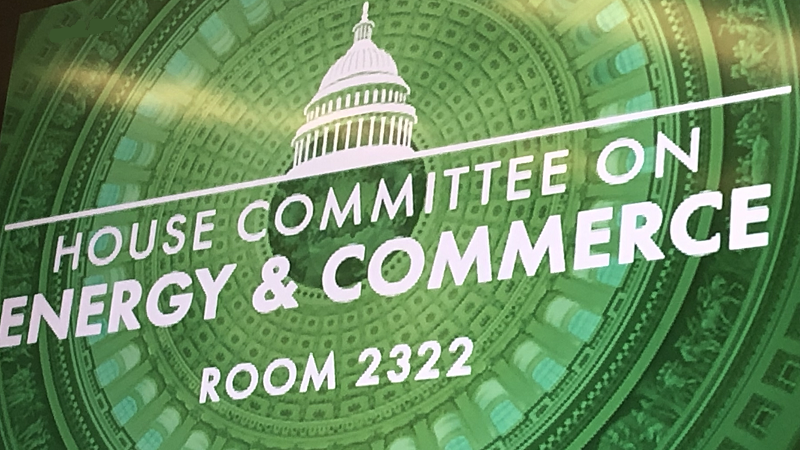
There seems to be a clear, bipartisan consensus among lawmakers and tech experts that in order to pass comprehensive guardrails for artificial intelligence, Congress must first approve a Federal data privacy law – a goal that has been eluding lawmakers for many years.
That was the bottom-line takeaway today from a House Energy and Commerce Innovation, Data, and Commerce Subcommittee hearing on Capitol Hill.
“AI has so many different applications – from auto filling text messages or Excel spreadsheets all the way to generating unique images and speeches – but at the base of these applications is that need to collect properly permissioned information to train and grow these AI models,” Subcommittee Chairman Gus Bilirakis, R-Fla., said. “Without a data privacy and security standard that dictates the rules for how companies can collect, process, store, or transfer information, bad actors may have unfettered access to use and exploit our most sensitive information.”
Rep. Bilirakis called on his colleagues to enact a data privacy law that will set the United States up for success to lead the world in AI.
In the last Congress, Energy and Commerce leadership – alongside the Commerce Innovation, Data, and Commerce Subcommittee leadership – introduced the American Data Privacy and Protection Act which was favorably reported to the full House by a vote of 53-2.
Subcommittee Ranking Member Jan Schakowsky, D-Ill., said today that the committee must work to reintroduce legislation that protects consumers’ data while simultaneously addressing AI.
“We passed a comprehensive consumer safety bill to protect people’s data. Our bill passed … this full committee almost unanimously to make sure that we protect consumer data, and we need to get back to that right away,” Rep. Schakowsky said. “And we need then to include in that AI.”
“As we know, states are moving ahead without us. There are now 13 states in the last year who have adopted data privacy legislation. One of the things that we wanted to do was have something nationwide that would protect consumers,” she continued, adding, “And I feel like we made such great progress in a bipartisan way in doing that, and we can move ahead now in adding AI to that as well and we ought to get on it right now.”
“I am really calling on all of us to be able to get back to being a Congress that can act, and when we do, that data privacy is among the very first things that we do,” the ranking member said.
Jon Leibowitz, the former chair of the Federal Trade Commission during the Obama administration, testified in front of the subcommittee today that the American Data Privacy and Protection Act from the 117th Congress was “groundbreaking work on privacy legislation.”
Liebowitz called on the lawmakers to create a statutory framework governing AI but noted that creating Federal privacy legislation is a “critical first step towards responsible development and deployment of AI.”
“No matter how well intentioned and thoughtful state laws may be, Federal legislation around AI is far more preferable than a patchwork of state statutes,” Liebowitz said. “And at the same time, Americans deserve a muscular Federal law that will give us greater control over our own information wherever we live, work, or travel and require more transparency and accountability by corporations.”
“Last year, you wrote that bill – one that would create a foundation upon which AI rules could develop. Its provisions are stronger than any single state law,” he continued, adding, “It shows that members on both sides of the aisle could work together on a quintessentially interstate issue to create a privacy regime benefiting all Americans.”
Clark Gregg, an actor and screenwriter in the Screen Actors Guild-American Federation of Television and Radio Artists (SAG-AFTRA), warned the committee that the U.S. is behind the curve.
“There are no comprehensive Federal privacy laws so individuals must depend on our inconsistent state laws,” the actor known for his role in the Marvel franchise said. “SAG-AFTRA will fight to protect our members voices and likeness from unauthorized use, but all individuals deserve safeguards against unauthorized access to their biometric data.”
“Our sector is under assault today. It may be your sector tomorrow,” Gregg warned.
The full committee Ranking Member Frank Pallone, D-N.J., noted that while AI and privacy legislation will be key in the near future, nothing can be achieved while House members continue to fight over the speakership.
“I’m very concerned about what we can actually accomplish if this paralysis with the speakership continues. It’s now 16 days since the House has been paralyzed without a speaker, we’re 30 days away from another potential government shutdown,” Rep. Pallone said. “This hearing comes at a time when House Republicans’ dysfunction is hurting the American people, weakening our economy, and undermining our national security.”
Earlier this week, Vice Chair of the Congressional Artificial Intelligence Caucus Don Beyer, D-Va., warned that the ongoing fight in the House over the speaker’s gavel has caused everything to “slow down to stop” – including critical AI legislation that many lawmakers wanted to move on during this calendar year.
